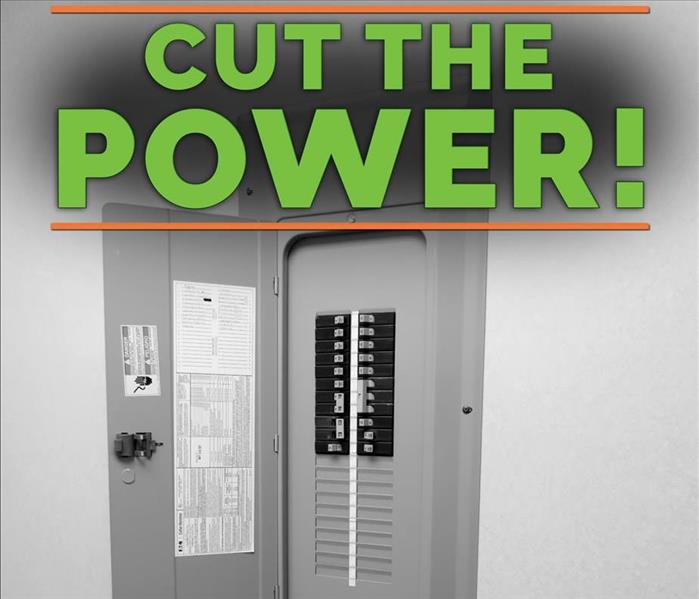Do's and Don'ts After Water Damage
11/9/2022 (Permalink)
Tips On Handling the Aftermath Of a Flood Or Water Damage
The moment you realize your home has been damaged by water, it's natural to feel shocked and panicked. Luckily, there are things you can do to help protect your property and get back on track as quickly as possible. Check out this handy guide for tips on handling the aftermath of a flood or other water-related incident:
Do: Shut off the electricity if you can safely do so.
Cut power to wet areas of your home, especially if water is standing in puddles. If you see a wall outlet or switch that is wet or has been submerged in water, shut it off at the main circuit breaker box or fuse box. You should also turn off any appliances that were turned on when your home flooded and are still plugged into an outlet (e.g., a coffee maker).
Don't: Use a plugged-in electrical appliance while standing in water or on a wet floor, even with rubber-soled shoes on.
This may sound like common sense, but we've all done it at some point—you've been cooking dinner, and the phone rings, so you set the pan down just long enough to pick it up. Or maybe you're working on an assignment for class when your computer dies and you feel like running downstairs to charge it for five minutes before going back to work.
Regardless of whether you're using a big appliance or something small (like an alarm clock), plugging in any electrical device while standing in water can pose serious risks of electrocution—and if there's one thing we've learned over our many years of working with H2O and electricity, it's this: water + electricity = bad idea.
Do: Call an electrician right away.
If you have any concerns about the electrical circuits in your home, call an electrician right away. If the power has been turned off and on again, it's critical to inspect for damage and safety issues. The National Fire Protection Association recommends that homeowners do not turn their electricity back on until they've checked for fire hazards like cracks or frayed wires, as well as moisture damage that could cause mold growth in the future.
Do: Mop up all touchable surfaces such as walls and floors to get rid of excess moisture.
This will prevent mold or bacteria growth in your home, which could cause structural problems if left untreated. Avoid using a vacuum cleaner to clean up water damage because it can suck up small particles of dirt and debris. Also, avoid using a power washer to clean up water damage as this may spread the problem into other areas of your home if not done correctly.
Don't: Go into rooms with standing water while barefoot.
You should also avoid going into any rooms with standing water, areas that have wet carpets or floors, and any area that's damp. The same goes for walls. If you find yourself entering an area and feel as though there may be moisture in the air and on your skin, don't stop to check—just leave immediately.
In conclusion, water damage can be traumatic. However, the most important thing is to not panic and act quickly. You should always shut off the power when you see signs of water damage so that you don’t get electrocuted by an electrical appliance that’s been submerged in water. If you have any doubts about whether your electrical system has been damaged or not, call an electrician right away.





 24/7 Emergency Service
24/7 Emergency Service
